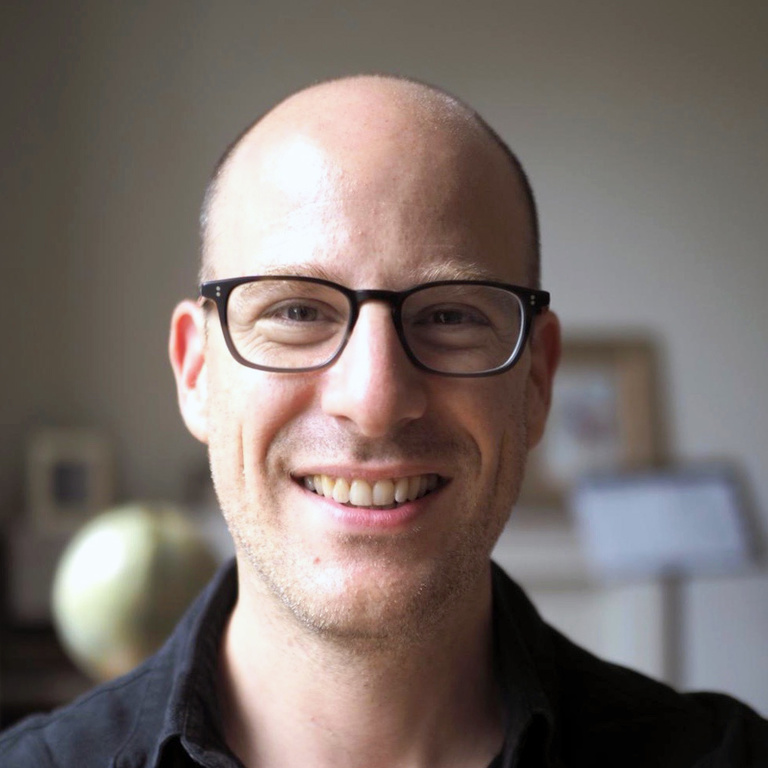Nick Yablon
Drop-in hours
- Tuesday, 12:45 - 1:45 p.m. (in person) and Wednesday, 10 am - 12 p.m. (Zoom), or by appointment.
Nick Yablon earned a BA in history from the University of Birmingham (England) and a PhD in history from the University of Chicago. His area of expertise is nineteenth-century and early twentieth-century U.S. cultural history, with a research focus on urban history, memory and monument studies, the built environment, material culture, photography, and the changing experiences of space and time in modernity.
His first book, Untimely Ruins: An Archaeology of American Urban Modernity, 1819-1919 (University of Chicago Press, 2009) examines how a new poetics of the ruin emerged out of the spatio-temporal disruptions of American cities. Recovering numerous scenes of desolation—from failed banks, abandoned towns, and dilapidated tenements to the crumbling skyscrapers and bridges envisioned in science fiction and cartoons—Untimely Ruins exposes crucial debates about the economic, technological, and cultural transformations known as urban modernity.
In his second book, Remembrance of Things Present: The Invention of the Time Capsule and the Politics of Posterity (University of Chicago Press, 2019), he explores the ideas, hopes, and anxieties that prompted Americans in the Gilded Age and Progressive era to forge this new memorial practice of dispatching messages and documents to a predetermined future date via some kind of sealed container. Unlike the museums, public archives, and professional historians of the period, he argues, time capsules constructed a memory of the present and the everyday, and they sought to transmit that memory through material artifacts and through new media such as photography, cinematography, and phonography, before those were accepted as legitimate historical sources.
The book also considers time capsules as devices for projecting utopian futures. Contributors of diverse political persuasion – from advocates of eugenics and temperance to campaigners for female suffrage, black civil rights, and socialism – imagined the utopia their political principle would have realized by the capsule’s target date. While utopian wishes can become abstract and compensatory, time-capsule contributors could render them concrete by addressing specific future individuals and expressing an affective or even physical bond with them. Such an embodied and intimate relationship to posterity, the book concludes, is crucial to any effort to achieve long-term change.
Nick’s third book explores the intersections of urban photography and historic preservation in Progressive-era New York. A portion of this book has appeared in the Journal of Urban History as “‘A Curious Epitome of the Life of the City”: New York, Broadway, and the Evolution of the Longitudinal View.” He has also published essays in Journal of American History, American Quarterly, American Literary History, Winterthur Portfolio, American Art, History of Photography, Journal of American Studies, and History Today, among other journals.
Teaching
Undergraduate
- HIST:2151 Introduction to the History Major: History through Photographs
- HIST:2151 Introduction to the History Major: The Forging of Modern America, 1870-1920
- HIST:2230 / AMST2230: Fame and Celebrity in US History
- AMST:2400 The Guitar in America
- AMST:3090 Seminar in American Cultural Studies: History of the Future
Mixed
- AMST:3060 Metropolis: Cities in American Culture
- AMST:3063 American Ruins
- HIST:3250:0001: American Stuff: History in Things
- HIST:3267:0001 Apocalyptic Visions & Movements in US history
- HIST:3251: The Office: Business Life in America
- HIST:3265 / AMST 3265 American Monuments
- HIST:4205 / AMST4205: American Cultural History, 1820-1920
Graduate seminars
- HIST:6003: History, Theory, and Interpretation
- AMST:6050 Empire of Time: Temporality in American History
Awards and service
- NEH fellowship for research at the New-York Historical Society, 2013-14
- Getty postdoctoral research fellowship, 2007-8
- NEH fellowship for research at the American Antiquarian Society, 2002-3
Publications
Books
- Remembrance of Things Present: The Invention of the Time Capsule (2019)
- Untimely Ruins: An Archaeology of American Urban Modernity, 1819-1919 (2009)
Articles
- "Nation of Carpetbaggers': Mobility, Materiality, and the Emergence of a Counter-Reconstruction Epithet" Journal of American History, 108.3 (2021) 457–491.
- "For the Future Archaeologist: A British Influence on the American Development of the Time Capsule" American in Britain 5 (2020): 28-34.
- "The Empty Cities of Urban Apocalypse” Chapter in Apocalypse in American Literature and Culture, edited by John Hay (2020): 252–67.
- “Time and Space" in A Cultural History of Memory in the Nineteenth Century, edited by Susan A. Crane (2020).
- "The League of Planets: Professor Albert Porta and the Apocalyptic Panic of December 1919" History Today 70.1 (2020): 28-41.
- For the Future Viewer: Salvage Ethnography and Edward Curtis’s “The Oath – Apsaroke” Journal of American Studies (2019): 1-31.
- “‘A Curious Epitome of the Life of the City:’ New York, Broadway, and the Evolution of the Longitudinal View” Journal of Urban History 44.5 (2018): 953-984.
- "Untimely Objects: Temporal Studies and the New Materialism" Chapter 8 in Time and Literature, edited by Thomas Allen. (2017): 120-33.
- “Posing for Posterity: Portraiture and the Invention of the Time Capsule, 1876” History of Photography 38, no. 4 (2014): 331-355.
- "'Land of Unfinished Monuments’: The Ruins-in-Reverse of Nineteenth-Century America”
- “Utopia or Heterotopia: John Sloan and the ‘Roof Life of the Metropolis’”
- Encapsulating the Present: Material Decay, Labor Unrest, and the Prehistory of the Time Capsule, 1876–1914
- “Echoes of the City: Spacing Sound, Sounding Space, 1888-1916”
- “‘A Picture Painted in Fire’: Pain’s Re-enactments of the Last Days of Pompeii, 1879-1914”
- “South Side Story”
- “The Metropolitan Life in Ruins: Architectural and Fictional Speculations in New York, 1909-1919”
Commentary and popular writing
- Visual and Material Culture
- United States
